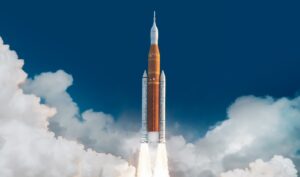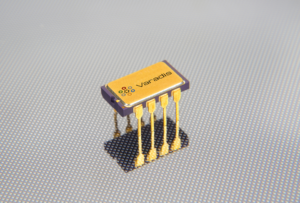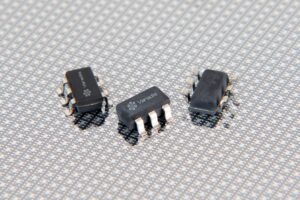News, Insights, and Publications
Get the latest news on Varadis and our industry including key insights and publications from experts in the field.
Varadis Space Business Soars in 2023
To say that 2023 was a stellar year for our Varadis Space business would be an understatement. Major international space agencies and space companies continued to turn to Varadis sensors to monitor radiation on important key projects: NASA Artemis 1, which orbited the moon and deployed 10 CubeSat…
Read MoreVaradis Radiation Detection Sensors to be Aboard Mission to Explore Asteroid
Varadis, the leading provider of high-energy radiation detection sensors, is excited to announce that JAXA (Japan Aerospace Exploration Agency) will use the company’s VT06 radiation detection sensor to measure absorbed ionizing radiation aboard the DESTINY+ mission, which will launch in 2024. This mission will explore the Phaethon asteroid to conduct…
Read MoreVaradis Radiation Detection Sensors Meet NASA Certification
Varadis Radiation Detection Sensors Meet NASA Certification Varadis, the leading provider of high-energy radiation detection sensors, is pleased to announce that its VT06 RADFET has been certified as a NASA EEE-INST-002 S1 Level 3 screened part. NASA’s EEE-INST-002 S1 Level 3 covers both Destructive Physical Analysis (DPA) and Screening to…
Read MoreVaradis Radiation Detection Sensors to Land on Moon
Varadis Radiation Detection Sensors to Land on Moon Varadis, the leading provider of high-energy radiation detection sensors, is pleased to announce that its radiation detection sensors have been chosen by the Center for Astronautical Physics and Engineering, National Central University in Taiwan to measure ionized radiation via its Deep Space…
Read MoreUltra-low-power RADFET Sensing Circuit for Wireless Sensor Networks Powered by Energy Harvesting
With an increasing interest from the IOT community in our sensors, researchers from University of Exeter in England recently showed that our RADFET together with a low power sensing circuit can operate successfully with a wireless sensor node powered by a piezoelectric harvester. A novel low power sensing circuit was…
Read MoreAn improved RADFET based module with an extended dose range of 1kGy TID based on COTS parts
An improved RADFET-based module dosemeter has been developed by Varadis (a spin-out company of Tyndall National Institute in Cork, Ireland) with serial number RM-VT01-A. The module is based on commercially available, commercial-off-the-shelf (COTS) parts and represents an updated version of its predecessor RM-VT01 with an upper dose limit of 10Gy…
Read MoreOn-Orbit measurements of TID and Dose Rate from two RADFETs on board NANOSAT-1B satellite
Abstract: TID and Dose Rate data from 2 different RADFETs from Tyndall on board NANOSAT-1B from 2009 to the end of mission in July 2015 are presented. Data are in agreement with prediction models. Download: Click HERE to download the full publication.
Read MoreVaradis RADFETs provide critical data on Rosetta Space Mission
Abstract: On its more than 10 years journey to comet 67P/Churyumov–Gerasimenko, Rosetta carried RadFET ionising dose monitors in the central electronics of the orbiter instrument COSIMA and the lander instrument SESAME. The readings of the dosimeters were corrected for the temperature of the devices during measurements. Because the sensitivity of…
Read MoreEngineers Journal: Tyndall’s radiation detection technology spins out to Varadis
Published in the Engineers Journal Article on 8th July 2019. A novel radiation detection technology, developed at Tyndall National Institute, has been licensed exclusively to Cork-based Varadis. Ionising radiation such as gamma rays, protons and X-rays Prof William Scanlon, CEO, Tyndall, and Brad Wrigley, CEO, Varadis, pictured at Tyndall at…
Read MoreGamma-Ray Irradiation and Post-Irradiation Responses of High Dose Range RADFETs
Abstract: Gamma-ray irradiation and post-irradiation responses have been studied for the two types of radiation sensitive p-channel MOSFETs (RADFETs) from different manufacturers. In addition to, in dosimetric applications standard, threshold voltage measurements at a single specified current, transistor – and charge-pumping characteristics have been monitored. This has been shown to…
Read More





